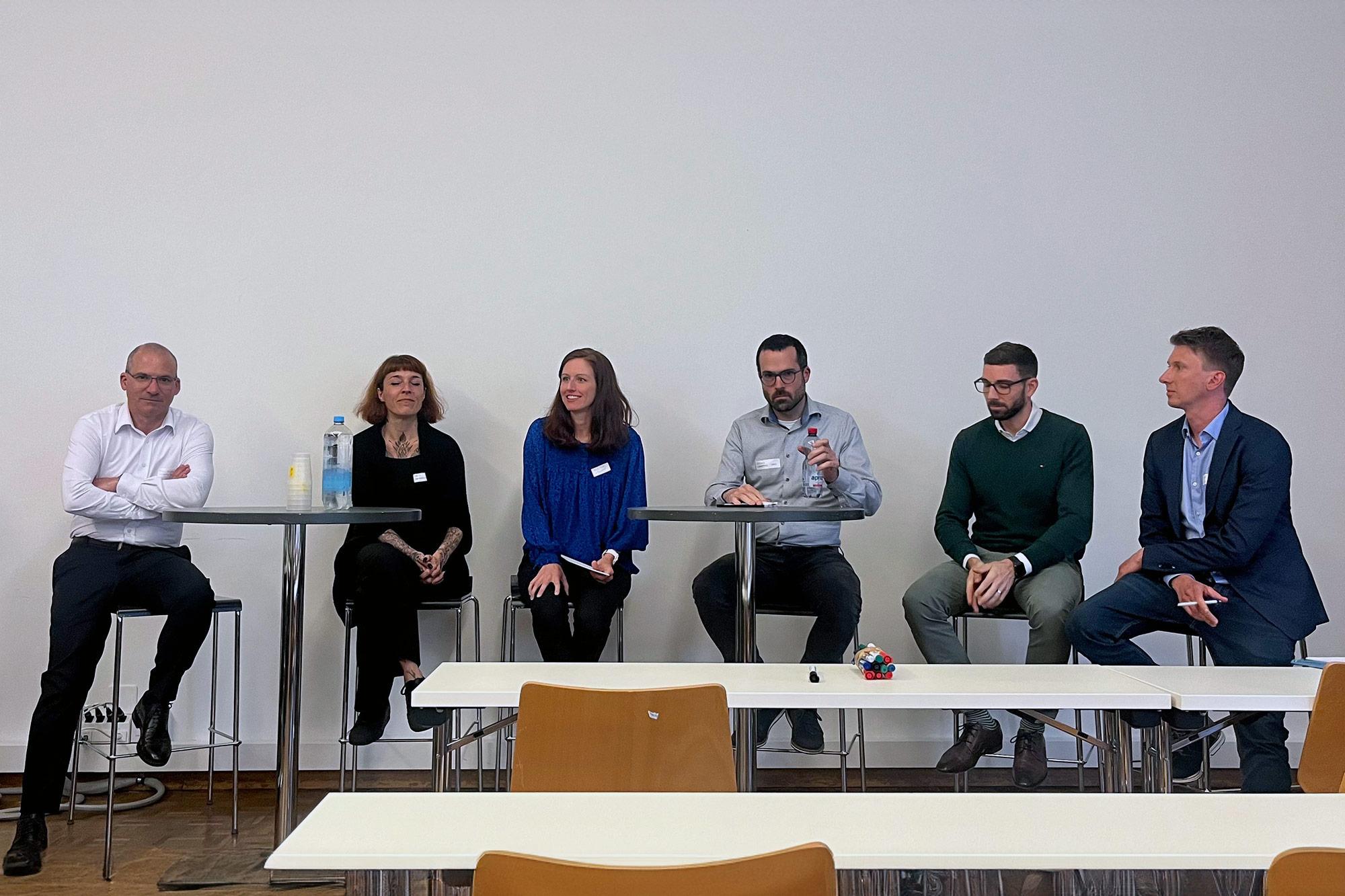How gig workers work in Switzerland

Two NRP 77 research projects are looking into the phenomenon of platform work. Who carries out what jobs? How long are the assignments? And how do the workers fare? This research has answers.
Two research projects in the National Research Programme NRP 77 are looking at the new form of work brought about by the digital transformation: platform work. At the end of May 2024, both teams presented their findings at a conference before discussing them in greater depth in workshops with stakeholders.
Platform work is temporary work performed by individuals who are placed via an online platform without the workers having a long-term employment relationship with the company or customer. Well-known examples are food delivery services, but highly qualified professionals, such as cooks, craftspeople and graphic designers, can also be found on platforms.
In Switzerland, one in ten people accepts work via platforms once a week (Syndicom, 2017).
Extent of employment and education of platform workers
Caroline Straub from the Institute for New Work at the Bern University of Applied Sciences and Daniel Spurk from the Institute of Psychology at the University of Bern developed a joint research project to find out more about the work and career experiences of gig workers. Together with their team, they conducted qualitative interviews and quantitative surveys as part of NRP 77 and gained exciting insights. These include:
- 33.4% of those surveyed work an average of 18 hours per week via online platforms
- More than half do short assignments (durations of 4-8 hours)
- More than half combine gig work with a permanent position or self-employment
- More than half of gig workers or freelancers completed higher education
In the interviews, employees in this new form of work talked about its challenges. One issue, for example, is the lack of social integration: company parties or coffee breaks take place without platform workers. Limited negotiating power in interactions with customers is also a challenge, as platform workers are dependent on good reviews. Their income is irregular, and they have to constantly promote themselves in order to get jobs.
The opportunities created by on-demand work
People who accept work via online platforms also see opportunities in this new form of work. For example, it allows flexibility in terms of both time and content, access to new kinds of professional activities and career options as well as the opportunity to be your own boss.
Flexwork in the care sector
Florian Liberatore from the Zurich University of Applied Sciences and Petra Klumb from the University of Fribourg took a closer look at a specific category of job placement via platforms: the placement of nursing professionals.
Various work models organised via platforms are used in the care sector: temporary and substitute staff who are hired for assignments of varying lengths or employees in internal pools who are deployed across departments and functions.
This working model has many advantages for nurses, as the survey carried out by Klumb’s team shows. Temporary nurses report slightly more control over their working hours, and they consider their pay to be fairer than that of permanent employees. The feeling of appreciation, on the other hand, is lower among temporary staff than among permanent employees. The timing of assignments also presents a challenge (it takes around 30 days on average from registration on a platform to working their first shift).
"Working on demand in care is associated with opportunities that are real (e.g. control over working hours). However, flexwork also presents organisations with challenges, such as integration in the team. The trend in care is towards internal staff pools. For organisations, the use of capacity management systems for the precise diagnosis of personnel needs can be helpful."
Florian Libatore, Petra KlumbConclusion

Workshops on how to improve platform work
Following the presentations, the research groups held workshops with various stakeholders. Florian Liberatore, for example, discussed how to integrate flexwork in nursing care at hospitals with representatives from temporary employment agencies and from the Swiss Professional Association of Female and Male Nurses.
Lorenz Affolter analysed how the psychological needs of platform workers could be better met. For example, he suggests hosting offline or online community events to promote social inclusion or using a dashboard to forecast and optimise hours and income as a means of increasing autonomy.
In a workshop organised by Clara Zwettler and Caroline Gahrmann, participants discussed what flexwork might require in terms of further training and the development of platform workers. What needs to be considered?
More detailed resources on the topic of FlexWork
The presentations given by Caroline Straub, Petra Klumb and Florian Liberatore at this event provide comprehensive insights into the research conducted as part of NRP 77 on the topic of FlexWork.
Links
This research was carried out as part of the National Research Programme (NRP 77), which supports 46 projects related to "Digital Transformation".
